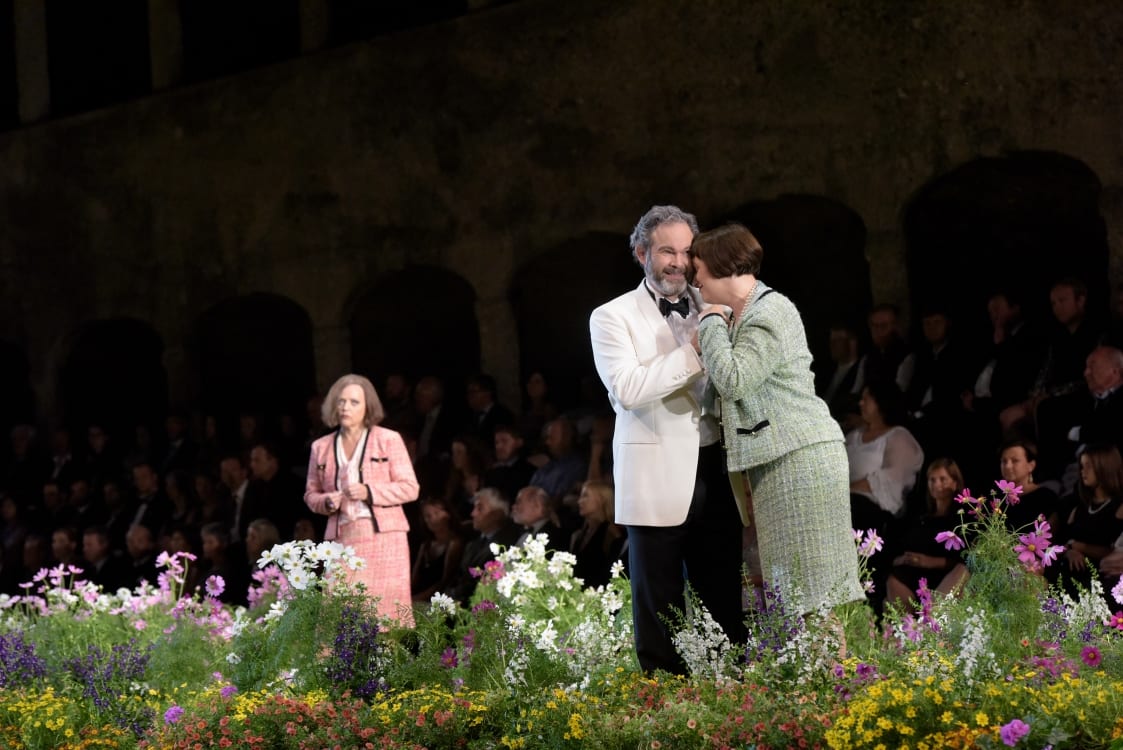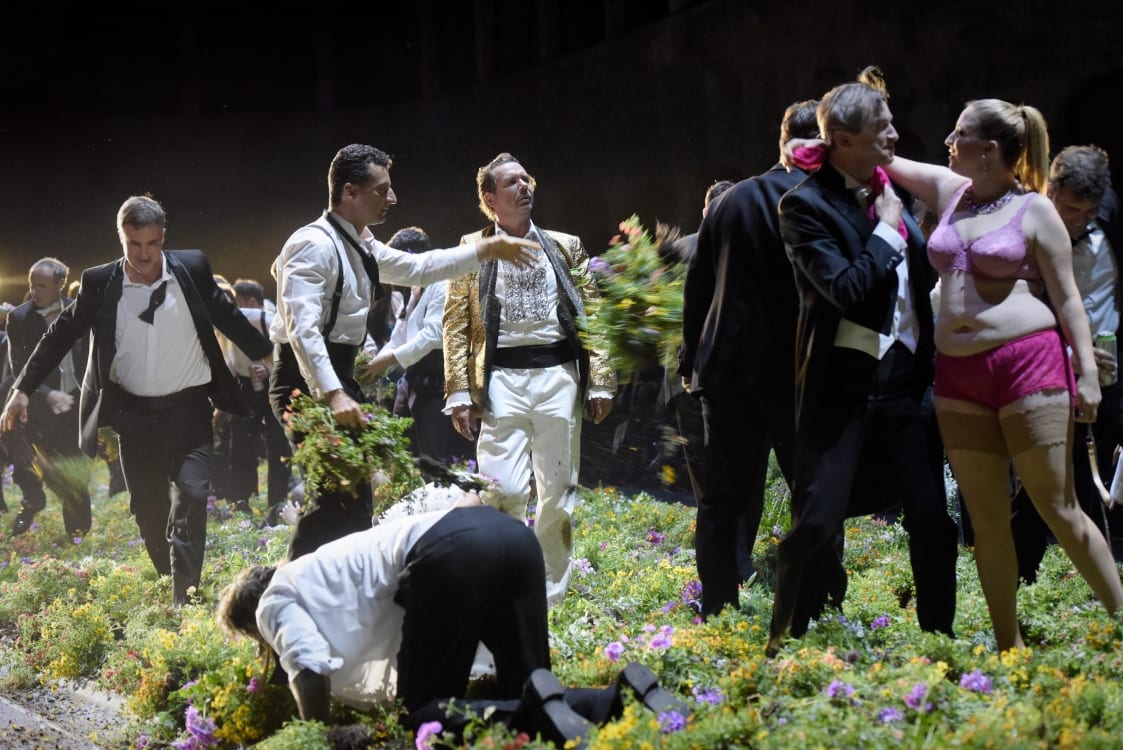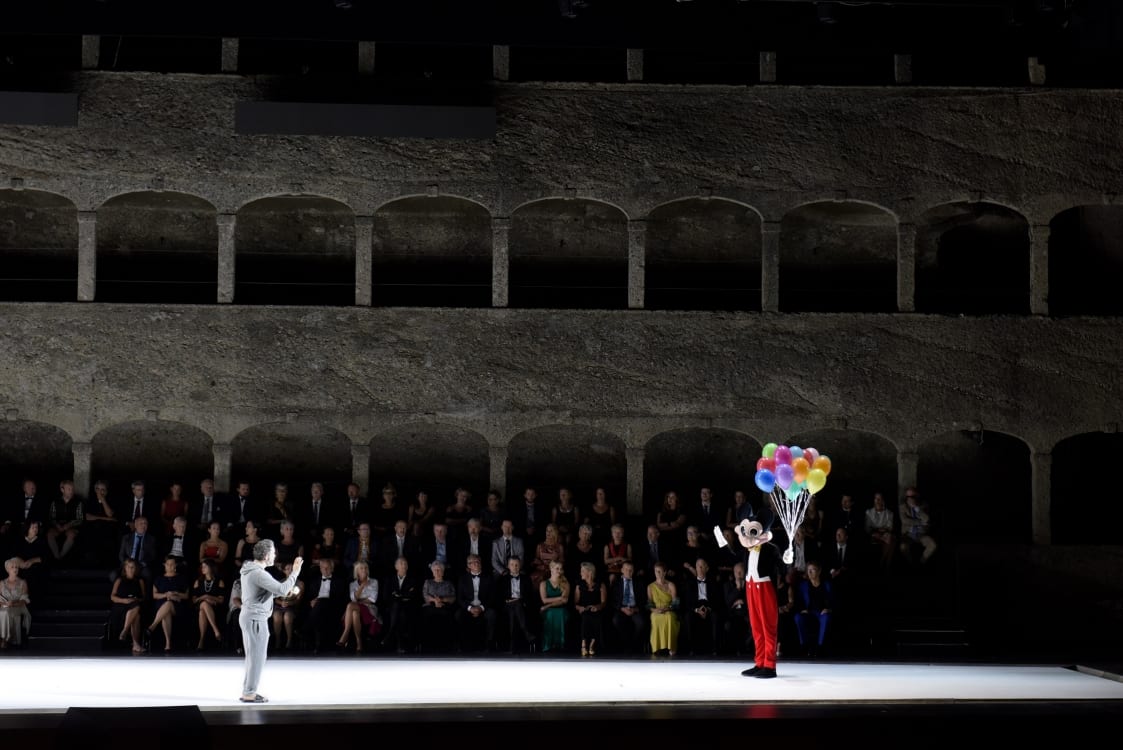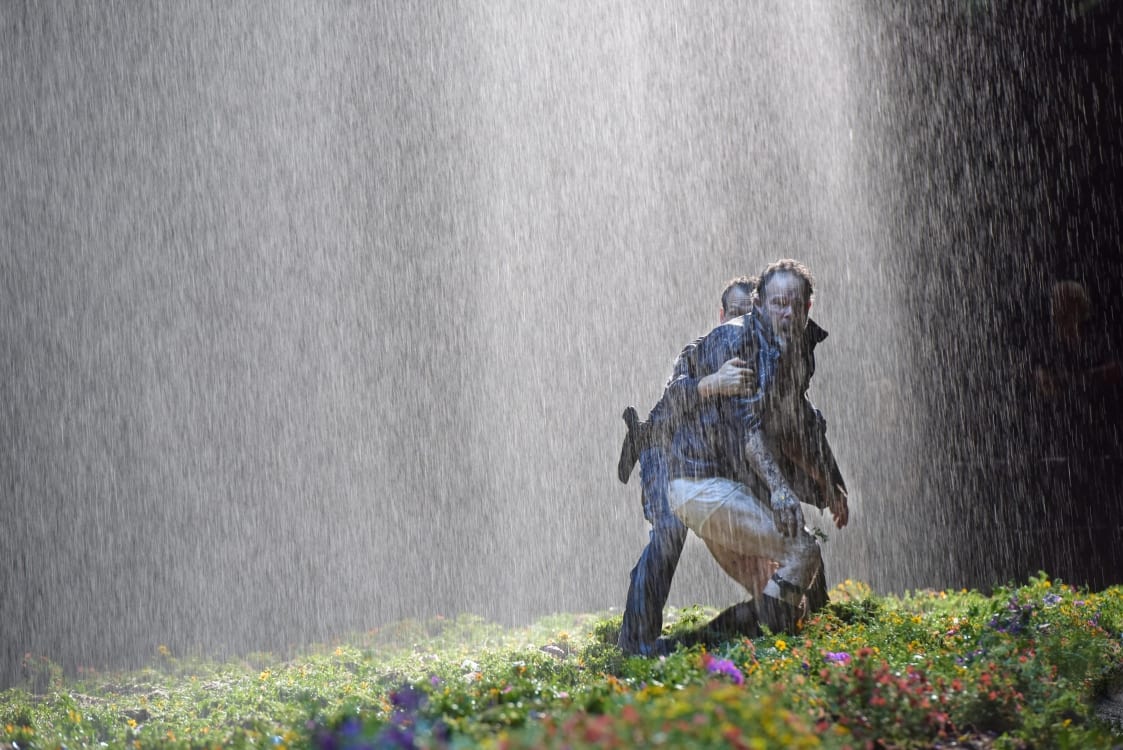You know what King Lear was always missing? A little bit of madness….at least according to director Simone Stone, that is. Shakespeare’s tale of opulence, madness, and greed begins as King Lear (Gerald Finley) decides to split his kingdom amongst his three daughters, so he might retire to a hedonistic life. In order to decide which of his daughters should have the largest share of his kingdom, he orders them to compete for his affection by proving which of them love him the most. His eldest two daughters, Goneril (Evelyn Herlitzius) and Regan (Gun-Brit Barkmin) are obsequious with their false praises, while his youngest daughter, Cordelia (Anna Prohaska) refuses to play the game, claiming the strength of a daughter’s love, no more no less. In his fury, Lear banishes his youngest, to live with the King of France (Tilmann Rönnebeck) but stripped of her dowry, leaving a perfect opportunity for his conniving eldest daughters to take control. Murder, betrayal, and madness run rampant through the greedy nobles and tragedy’s inevitable.
I found that my mantra while watching this operatic production of King Lear became “just don’t ask.” Just don’t ask why the cast is rolling about in dirt and wild flowers. Just don’t ask why Poor Tom/Edgar (Kai Wessel) takes on the guise of Mickey Mouse or Cornwall (Michael Colvin) and Edmund (Charles WAorkman) that of butchers. Just don’t ask why the eyeless Gloster (Lauri Vasar) springs to life and a jig once donning the Mickey Mouse head. Just don’t ask, because what’s the point? That’s the madness of the opera, a heady delusion of light, music, and blood, drawing the audience down on its own descent. The drive of this production appears to be in producing striking visuals that, while not original these days, are breathtaking nonetheless. The first act is set on a bed of wild plants and flowers on a long narrow platform, the orchestra in front and an audience on stage behind it. The cast clomps across it, pulling and tearing at the plants as they see fit. In Lear’s turn to madness, he literally strides through the winds and rains as water cascades down from above. The second act see the nature setting vanish, replaced with a piercing white floor light, reminiscent of the shape of a coffin. Upon this stage, the ghastly blood that the players coat themselves in is particularly striking. The gorgeous creativity of the set would threaten to overwhelm an average cast, which is why this production is lucky to have such strong performers, both vocally and physically, to break through the onslaught of external madness and whimsy. I have never heard a falsetto so powerful as Edgar’s and Goneril’s rage and greed and polished decorum all wage war both in her voice and mannerisms. Aribert Reimann’s pounding and maddening score moves us through the pits of despair, the flicker of hope, and the crash of failure again as greed proves corrupt and the worst always yet to come.
“And worse I may be yet: the worst is not
So long as we can say ‘This is the worst.”





